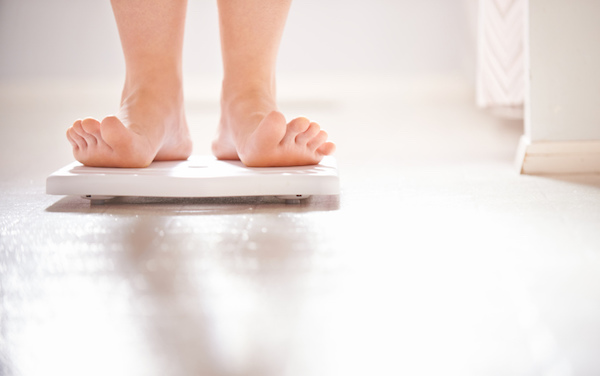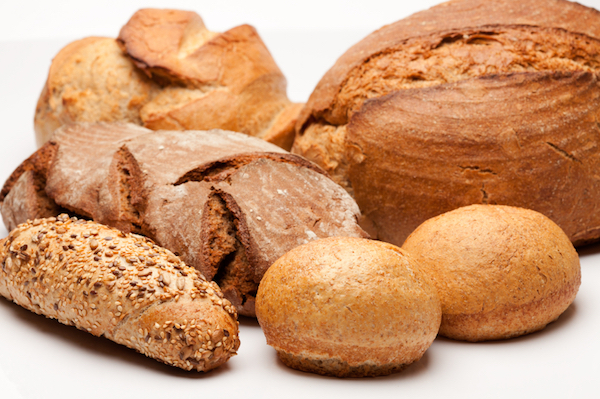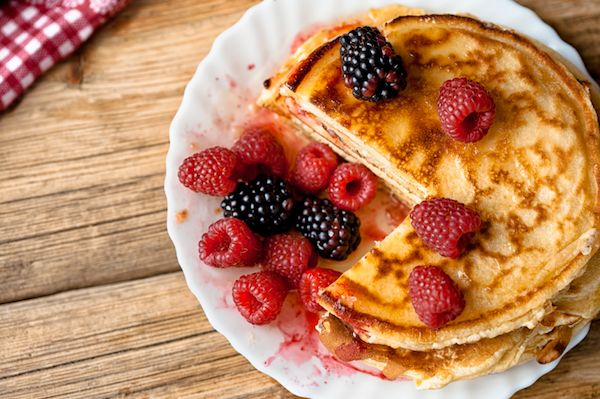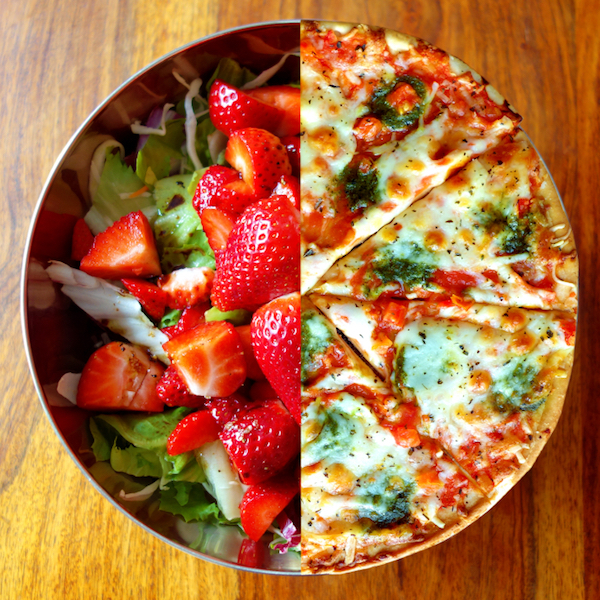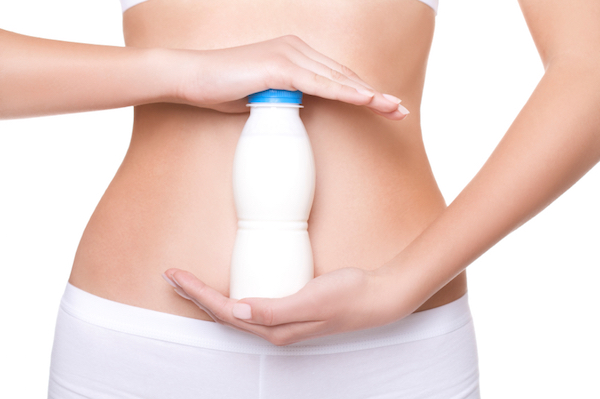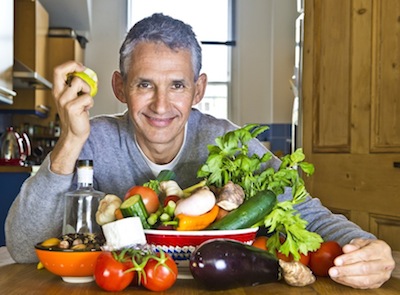Confused about weight loss? Professor Tim Spector, author of The Diet Myth, explains why everything you thought you knew about dieting is wrong. Here are his 7 diet myths you probably believe
We are currently living through an epidemic of obesity and allergies. Obesity rates have tripled over the last 30 years despite the fact that more of us are exercising regularly and watching calories than ever before. Two in three Britons are now overweight or obese and one in five of our children are clinically obese. What’s interesting is that there is no evidence that this massive change is due only to us being greedy and eating more calories. What we eat is likely much more important than our total calorie counts.
Obesity rates have tripled over the last 30 years despite the fact that more of us are exercising regularly
But today choosing exactly what to eat to be healthy is far from clear. We are bombarded by contradictory messages from doctors, experts, brands and the government about what we should be eating and what we should be cutting out; whether it’s sugar, fat or carbs that are the biggest culprits in causing our waistlines to keep expanding.
It turns out that the answer is in our gut microbiome, an area in our lower gut weighing 4lbs and containing 100 trillion microbes. We all possess a unique set of microbes, which vastly outnumber our cells and genes, and their function is to digest food and keep up alive and healthy. Now cutting-edge research and technology are allowing scientists to discover how, by changing our diets, we can enable our microbes to keep us slim, avoid disease and allergies and even brighten our mood. It’s time to challenge the old myths and misconceptions about food and embrace the new scientific evidence.
MORE: 11 reasons you’re always hungry
Here are 7 diet myths busted:
1. All calories are equal
We now know that losing weight is not a simple as calories in vs calories out. While a calorie is a calorie on a food label, they are actually not equal when it comes to their impact on the human body. Studies now show that our gut microbes and the way they interact with our genes determine how food is digested and used. This means that two people can eat exactly the same amount of calories and do exactly the same amount of exercise but will still lose or gain weight at a different rate.
2. Calorie restriction diets work
There have been many studies, including the ones I’ve run with sets of twins, which have shown that people react very differently to identical foods and weight loss regimes. This is partly down to our genes but it is also down to our microbes, which produce a range of different chemicals from food. These chemicals can have very different health and weight effects. So if two people eat identical bowls of pasta they will have different amounts of it deposited as fat due to the differences in their microbes. Because everyone has a very individual gut profile, the way we process our food is often unique to us.
if two people eat identical bowls of pasta they will have different amounts of it deposited as fat due to the differences in their microbes
3. Exercise helps weight loss
I’m a big advocate of exercise – it’s hugely beneficial for your heart, your mood and general wellbeing. But it’s not necessarily going to slim your waistline. The advice to eat less and exercise more to lose weight is outdated and usually fails. Exercising actually often leads to weight gain because your body is programmed to adapt to compensate for the extra exertion. It is more difficult to get rid of fat than muscle – we have to expend five times as much energy. That doesn’t mean we shouldn’t bother though. Studies have shown clearly that being fit makes you healthier and likely to live longer.
4. Cutting out carbs is good for you
There is a growing trend for claiming obesity can be cured by omitting just one part of our diet. This has led to many popular books each advocating the elimination of major food groups – each one allegedly the major villain(s). These include banning milk, dairy and meat products, grains and gluten-containing foods, saturated fats, “modern” foods like grains and legumes, fructose or all sugars and carbohydrates. No wonder we are confused.
The science behind these popular diets is flawed and following any of these regimes for any length of time is often impossible, as I found out when I experimented on myself. The other major consequence that these diets have is a major reduction in the range and diversity of the foods we eat. Until recently we didn’t think this mattered, but the latest research shows how dangerous this attitude can be.
Microbial diversity is the key to our health. The more variety, the healthier the individual
Many people’s diets rely heavily on processed foods. This means that they are ingesting as few as 10-20 different food ingredients over a year. This is in contrast to our hunter-gatherer ancestors who we estimate to have eaten around 500 species of plants and animals over a year. It is no coincidence that they had nearly double the species of microbes that we do. Microbial diversity is the key to our health. The more variety, the healthier the individual. Low microbe diversity is implicated not only in obesity and diabetes, but a whole range of “western diseases” like allergies, autoimmune diseases and irritable bowel syndrome
5. Always have breakfast
One of the most quoted ‘golden rules’ of healthy eating is that breakfast is the most important meal of the day. What many people don’t realise is that this is nothing more than a marketing ploy employed by breakfast cereal companies to boost sales!
Part of the same dogma is the idea that we should eat ‘little and often’ to prevent spikes in blood sugar and the subsequent lows that make us eat more. But these are both nutritional myths with no good evidence to back them up.
The truth is that short term fasting has been shown to help weight loss by stimulating friendly microbes. The ‘time off’ from digestion gives our microbes a chance to ‘clean up’ the gut lining, allowing for a greater variety of microbes to flourish next time we eat.
short term fasting has been shown to help weight loss by stimulating friendly microbes
This could be why intermittent fasting diets like the 5:2 have been so successful. But studies have shown that even extending the period of fasting overnight to late-morning or lunchtime can have similarly positive effects on weight loss and blood profile.
The key is to listen to your body. If you usually need breakfast (like me) then go ahead and have something gut-friendly like full fat yoghurt with berries. But if you feel you don’t need it it’s because you don’t.
MORE: 8 best high energy foods
6. Avoid high fat foods
Scientific knowledge is turning against the received wisdom that ‘fats are bad for you’. In fact, more and more research is showing how eating the right fats can boost your health and also help your microbes flourish. So always opt for the full-fat version of dairy products. It may be higher in calories than a ‘low-fat’ option but ‘low fat’ often in reality means high sugar accompanied by emulsifiers, chemicals and preservatives that can disrupt your microbes.
more research is showing how eating the right fats can boost your health and also help your microbes flourish
A recent five year trial followed 7000 Spaniards divided between a low fat diet and a high fat Mediterranean diet with extra nuts and olive oil, full fat cheese and yoghurt. The study showed a third less heart disease, strokes, diabetes and breast cancer in the high fat group who even lost some weight.
Unpasteurised cheeses (the smellier the better!) and full fat yoghurt or kefir act like tourists in our guts – the bacteria they contain stimulate the rest of the community to be healthy, increasing diversity and altering the way we break down food.
7. Probiotics don’t work
Overuse of antibiotics is really worrying. It’s leading to antibiotic resistance but more immediately, every course of antibiotics you take is like setting off a nuclear bomb in your gut. Yes it kills the bad bugs that are making you sick but it also wipes out all the friendly bacteria you need to keep you fit and well. If you do have to take a course of antibiotics then make sure you take a probiotic at the same time and for some time afterwards. Studies have shown how this greatly helps your gut recover and protect against nasty C.diff infections.
If you have to take a course of antibiotics then make sure you take a probiotic at the same time
There’s no substitute for a healthy diet so make sure you’re cultivating a microbe-friendly environment in your gut. Eat lots of prebiotic foods like leeks, onions, garlic, Jerusalem or globe artichokes and asparagus. Prebiotics are fibres that we can’t digest but that our microbes can. They create the ideal environment for friendly bacteria to flourish. Eat lots of good probiotic foods to replenish your guts bacteria, like full-fat yoghurt, unpasteurised cheeses and fermented foods such as kimchi. The other key ingredients are polyphenols – plant chemicals that help promote the growth of good bacteria and block the bad. They are found in grapes, berries, onions, pomegranates, coffee, green tea, red wine and dark chocolate. The key is eating a varied range of foods particularly fruit and veg, the more the merrier – so enjoy!
MORE: Do carbs make you fat? 3 experts answer the question
Tim Spector is Professor of Genetic Epidemiology at King’s College London, Hon Consultant Physician at Guy’s and St Thomas’ Hospital, and Director of the TwinsUK Registry. He has won several academic awards and published over 700 academic papers, many of which relate directly to nutrition and the causes of obesity. He has appeared in numerous TV documentaries and is often consulted in UK and international media on his team’s research. Since 2014 he has been leading the largest UK’s open-source science project British Gut to understand the microbial diversity of the human gut. Tim Spector’s book on epigenetics, Identically Different, was longlisted for the Wellcome Trust Prize and shortlisted for the Transmission Prize.
Follow him on twitter: @timspector
Like this article? Sign up to our newsletter to get more articles like this delivered straight to your inbox.




